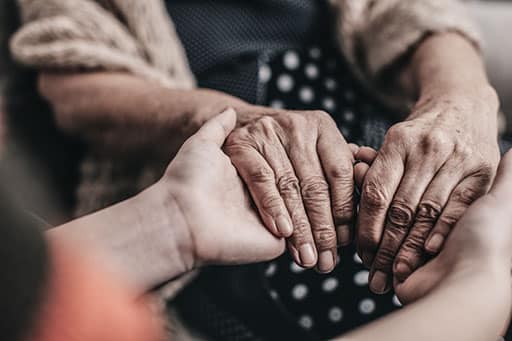Grief is hard. Losing a cherished family member or close friend is often the hardest thing we have ever gone through. And our society does not make it easier. We live in a society that puts aging, sickness and death behind the walls of hospitals, nursing facilities and funeral homes. So when we first encounter loss, all we have to go on are mistaken assumptions that actually make grief harder and which we have to relearn in order to find our new normal. Some of these common myths are:
1. “Stages of Grief”
Ask anyone anything about grief and most will quote the five stages of grief (denial, anger, bargaining, depression and acceptance). However, ask anyone who is seriously grieving and their experience will be a lot messier than a predictable timeline would imply. Normal grieving goes up and down, left and right, backwards and forwards as we make sense of our new reality and adjust to living without our loved one. The key is often a deep self-compassion for where we are right now rather than “shouldering” on ourselves for not getting faster to where we think we ought to be. Or as Megan Devine’s book title on grief says, “It’s Ok That You’re Not Ok.”
2. Outward emotion = weakness
So often we try to rein in our tears and get our painful feelings under control. Most of us have inherited the idea that somehow crying is a sign that we are not doing it right – or that if we only had more faith or a stronger disposition, we wouldn’t be struggling so much. On the contrary, we feel so much pain because we have held our hearts open to so much love. When we outwardly mourn, which our society avoids, we are actually showing great strength and courage. It’s a way for our bodies not only to communicate our need for support but also to release the tremendous stress that comes with losing the most important person in our lives and metabolize the energy of our grieving into as yet unwritten chapters of our future.
3. “Just Stay Busy”
Finally, most of us try to just “stay busy.” Sometimes, we are hurting so badly that we just don’t know what else to do. And while having work, projects or activities are a good way for many of us to cope, staying busy is often built on another myth that just avoiding talking about grief will make it better. This happens a lot especially around the holidays, when well-meaning friends and family can go entire celebrations without ever mentioning the name of our loved one that is always on our lips and in our hearts. On the contrary, it is crucial that we not only learn about grief and tools for healing but that we also remember. We remember our loved one. We remember our precious memories. And we remember our way to the other side by processing the difficult parts with a skilled listener.
Learn More
Here at Hospice of NGMC, we provide trained grief counselors, safe support groups and educational seminars to give you the knowledge and tools to avoid these mistaken beliefs that make grief harder. We know grief is a process of finding healing and hope for which we all so desperately long.
For more information, please contact us at griefsupport.Hospice@nghs.com or 770-219-0276.



